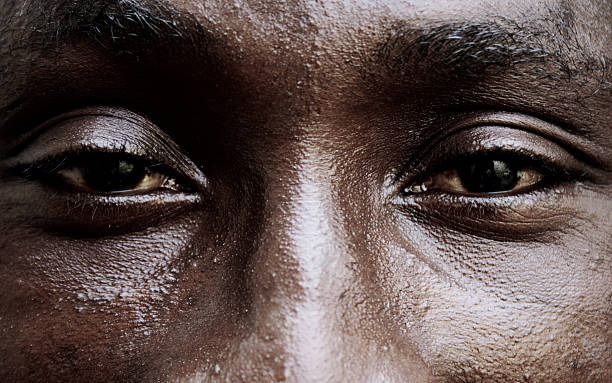Refractive error of the eye occurs when the eye fails to properly bend (refract) light to focus it on the retina, resulting in blurred vision. The most common types of refractive errors include:
- Myopia (nearsightedness): Difficulty seeing distant objects clearly.
Refractive errors can typically be corrected with glasses, contact lenses, or refractive surgery.

The Optometric Association of Ghana warns that ignorance and negligence regarding refractive errors could result in preventable visual impairment.
Prof. Samuel Bert Boadi-Kusi, President of the Ghana Optometric Association, stated, “It’s important that we protect the vision of our people because the burden of refractive error on the Ghanaian economy is significant. Cases of refractive error are on the rise and are one of the major causes of visual impairment in Ghana. The rate of uncorrected refractive error stands at about 44 percent, meaning that five out of ten individuals have a refractive error. Some are unaware of their condition, while others know but refuse to wear spectacles.”

He added, “We always advise that if you are below 40 years, you should visit the optometrist at least twice a year. If you are over 40, visit your eye care provider once a year to understand the state of your eyes. Your eyes are the windows to your body.”
Meanwhile, the World Health Organization has urged countries to reduce the prevalence of vision impairment and improve access to eye care services for refractive errors to 40 percent by 2030.
“We are advocating for refractive error services, especially since the World Health Organization has identified this as a key target for Vision 2030. To achieve a 40 percent improvement in refractive error, we must focus on the optometrist and all other eye care providers involved in addressing visual impairment,” he stated.
He also encouraged parents to motivate their children to engage in outdoor activities instead of being glued to tablets and computer games, as excessive screen time can contribute to an increase in myopia cases.

“Myopia rates are high in China, and now Africa is also seeing an increase in myopia cases. Why is this happening? The use of computer games and tablets among our children is on the rise. This is why myopia cases are increasing in Africa and Ghana. I urge parents to allow their kids to engage in outdoor activities,” he advised.

New optometrists were inducted during the 12th Annual General Meeting of the Ghana Optometric Association, held in Koforidua, the Eastern regional capital.
The theme for the occasion was “Artificial Intelligence in Optometric Practice: Embracing the New Era in Clinical Practice.”




